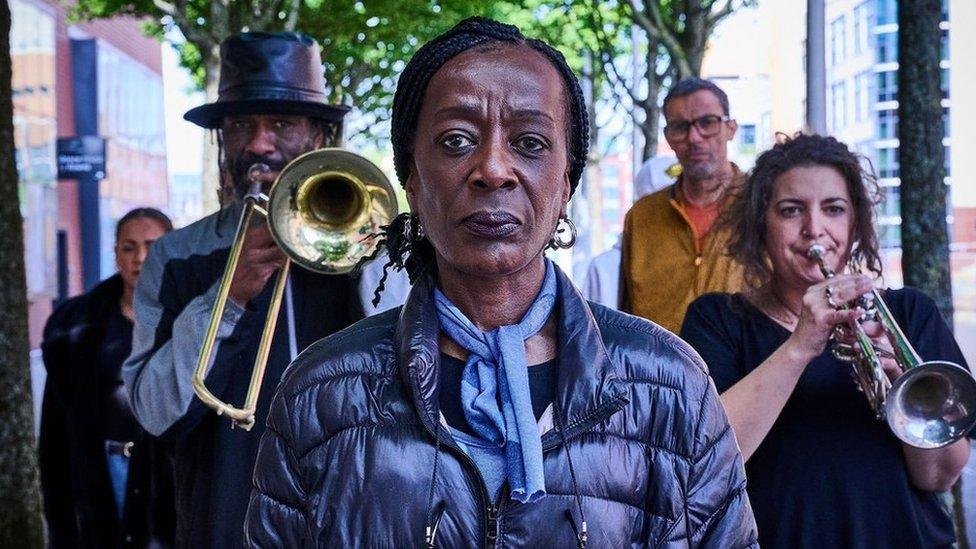I had grief panic attacks in school - but I was lucky
- Published
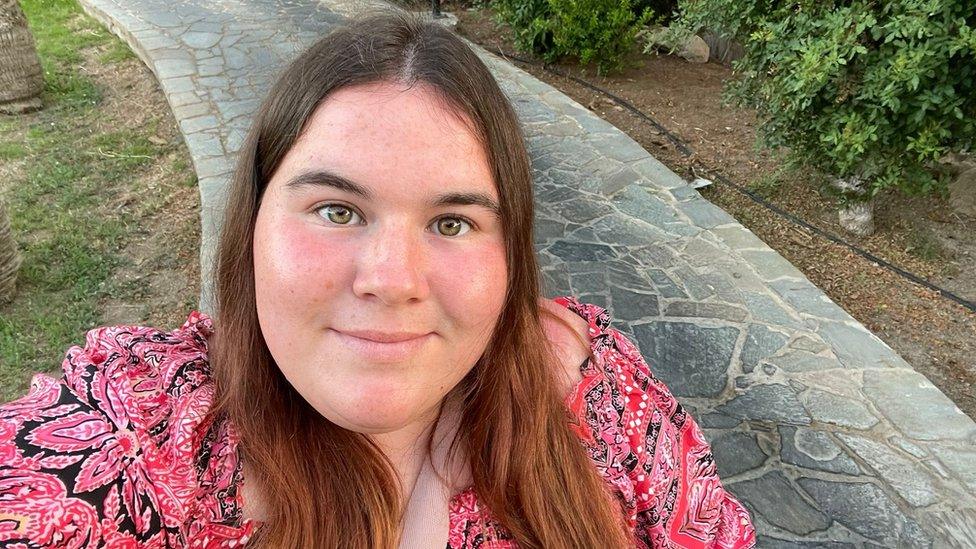
Isabella Darriba, 21, suffered panic attacks at school, after losing her father when she was aged 15
Grieving children could be facing a lack of support as rising costs and a spike in demand after lockdown are putting huge pressure on services, BBC News has been told.
In a GCSE English lesson in Milton Keynes, Isabella Darriba felt her heart rate start to quicken and her breathing become shallow. She was having yet another panic attack.
It had been triggered by a simple task set by the teacher, to imagine the sounds of the sea - sounds she associated with some of her happiest holiday memories with her father.
At the time, he was in a hospice, just a few miles away, with terminal bowel cancer.
Six years after his death at the age of 56, Isabella, 21, remembers how often she would flee her classroom in tears as she struggled to come to terms with losing her father.
"It was just thoughts spiralling and then I would have the feeling of claustrophobia, almost like the world was closing in on me," she says.
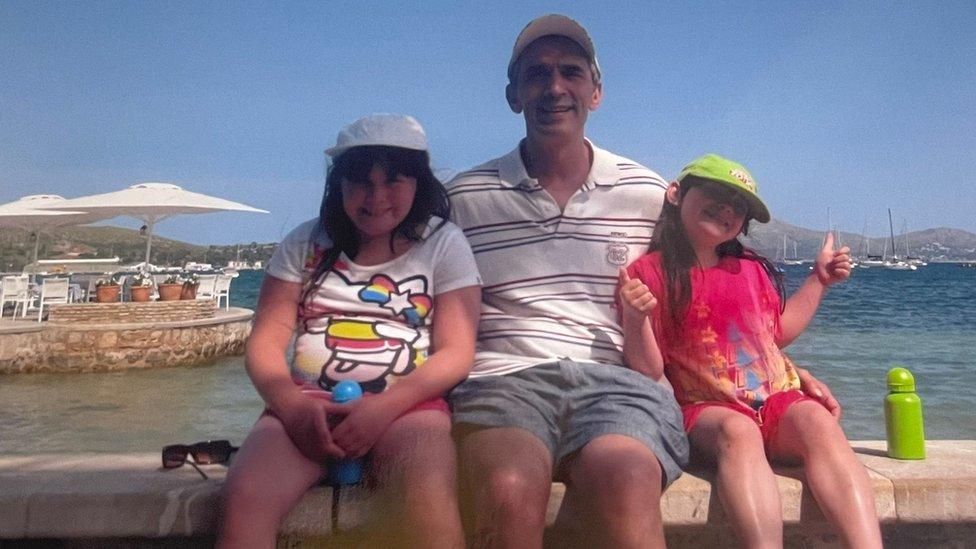
Isabella with her late father, Miguel, and sister Natasha-Lily
No official annual data is collected on the number of children in Britain losing a parent or sibling but the Childhood Bereavement Network estimates it was 39,000 in 2015.
One out of every 29 five-16-year-olds has been bereaved in this way, it says.
When Isabella's father died, she was "very lucky" to have the support of her classmates but felt more isolated than ever as school closed for summer.
Her mother turned to local charity Harry's Rainbow, which provides monthly group sessions, memory boxes and even a holiday caravan in Camber Sands, Sussex, for grieving families to use.
Odette Mould founded Harry's Rainbow, external two years after her five-year-old Harry died - a collapsed lung having caused incurable brain damage - and she struggled to find local bereavement services for his twin sister, Jessica.
No official datacollected on the number of children bereaved each year
1 in 29British children aged 5-16 estimated to be bereaved of a parent or sibling per year
90%of widowed parents struggle financially to put their children's needs first
Over-representationof bereaved people in criminal courts, lower educational attainment and unemployment
Without it, Isabella says she would have a "much more negative" outlook.
"Even though I've lost people in my life, I've gained a greater appreciation for people who are still here and the opportunities life has to offer," Isabella says.
But like many other charity bosses, Odette tells BBC News it is becoming more difficult.
The charity describes an "exponential rise" in demand:
80 new children registered in 2020
90 in 2021
85 in the first six months of 2022
The pandemic and cost-of-living crisis have further exacerbated financial difficulties.
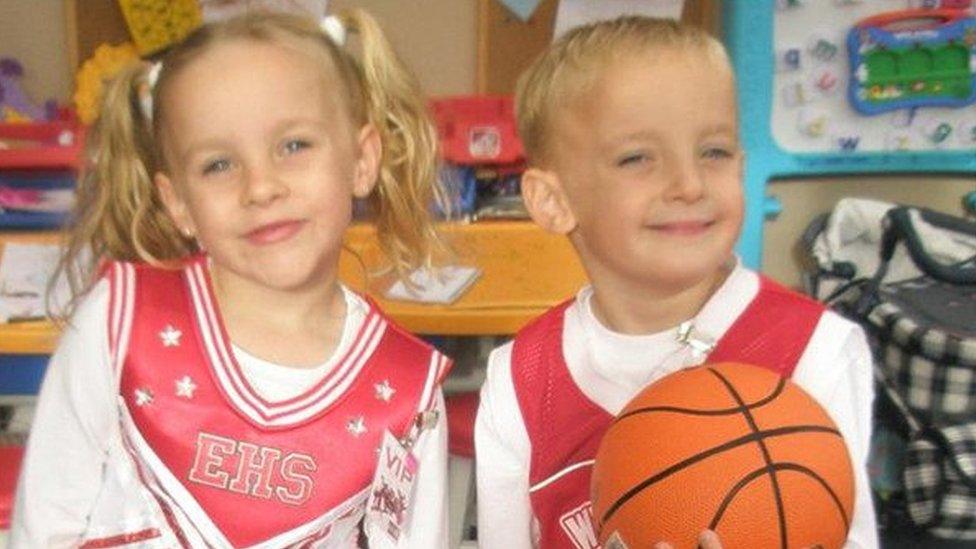
After Harry died, Odette Mould had to drive for an hour to get bereavement support for Harry's twin sister, Jessica
"At times, I could've given up, because it is very, very hard for charities like ours," Odette says.
"But we're trying to create something for other people and make a difference in the world."
Bereavement-support charities rely on:
donations
community fundraising
discretionary and usually short-term grants from organisations, including councils and NHS clinical commissioning groups
But lots of funding was redirected during the pandemic and lockdowns made in-person fundraising events impossible.
This "precariousness" could leave bereaved children without the support they need, Childhood Bereavement Network, external director Alison Penny says.
"Even before [the pandemic], we were noticing increasing demand for services," she says.
"What we were starting to see already was concerns about waiting lists and actually being able to respond to the level of need that was out there in the community."
'Patchy picture'
Many bereaved families have also waited until after the pandemic to seek support, causing a spike in demand.
"We know that it's a really patchy picture at the moment, so some children and young people can access support and others down the road or over the county boundary maybe wouldn't be able to," Alison says.
Isabella, starting teacher training in September, now wants to devote her career to ensuring grieving children have help.
"I just don't want anyone of any age to go through what I went through without the support I truly needed," she says.
If you, or someone you know, have been affected by bereavement, these organisations may be able to help.
Related topics
- Published21 June 2022
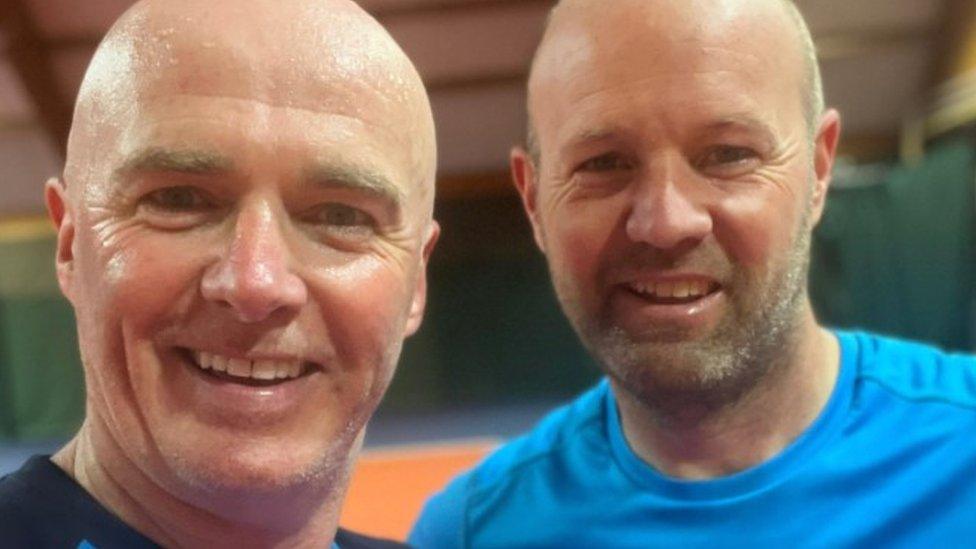
- Published18 June 2022
